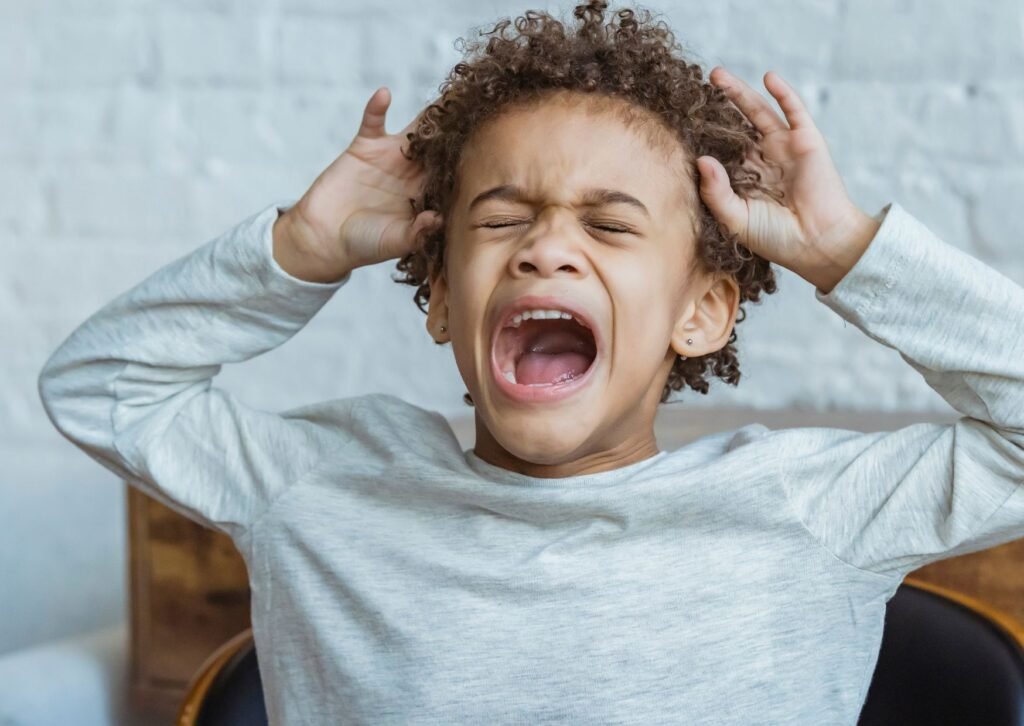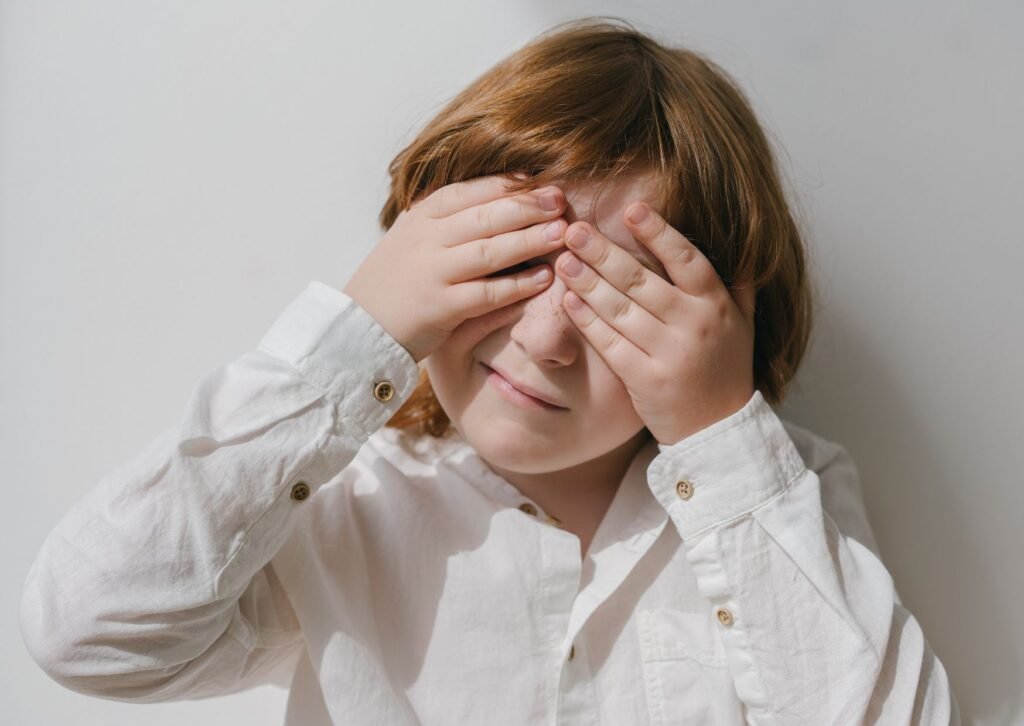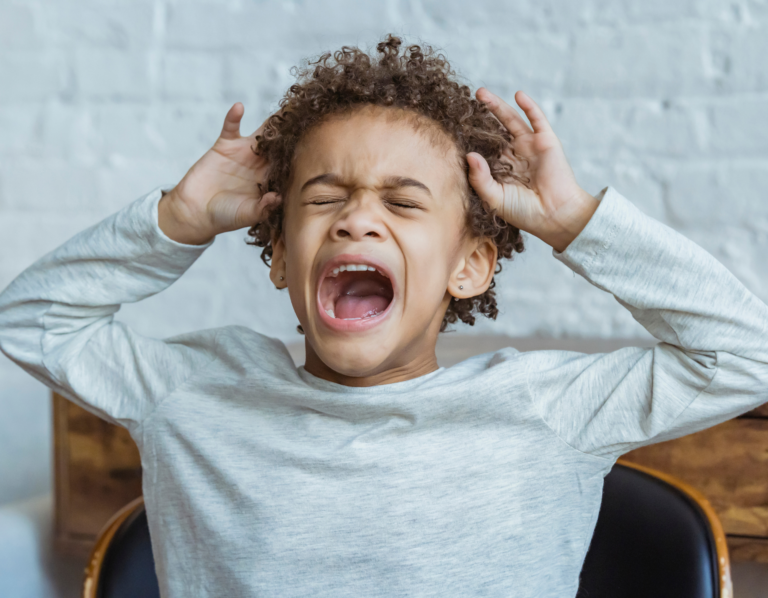Why Does My Toddler Bang His Head? When To Worry & How To Help Head Banging
Is your toddler banging his head and leaving you wondering, is head banging normal? Could this be a warning sign for autism? Do all toddlers head bang at some point? First of all, I understand that both of my children have gone through phases of banging their heads, and it can be a startling experience, to say the least! Let’s break it all down.
What Is Head Banging?
Toddlers sometimes display a repetitive behavior of intentionally hitting their head against a surface such as a wall, their high chair, the crib, or even the floor. This behavior is most commonly seen in children between the ages of 6 moths and 3 years old. Most commonly, this behavior is a form of self soothing, but we will break down the details of when it may be going beyond the “norm.”

Is Head Banging Normal In Toddlers?
To an extent, toddlers repetitively banging their heads is fairly normal and developmentally appropriate for toddlers and even infants. Most commonly, we see head banging as a form of self-soothing, although jarring to us as adults, the sudden motion and stop of banging their heads can be soothing to some children. This is unfortunately probably just another phase your toddler will have to outgrow, but let’s get into the details of when it’s not normal.

When Is Toddler Head Banging A Cause For Concern?
most often, it is not a cause for concern, however, there are some telltale signs that this behavior may indicate a bigger issue. The biggest thing to watch for is that your child is not actually hurting themselves by hitting their head. If it causes injury, bruises, cuts, or swelling, this behavior may be more intense than what would be considered normal. If this is your experience, it may be a good idea to reach out to your pediatrician and possibly seek a referral to PT and OT therapies for your child.
Another indication that this behavior may be abnormal in your child may be that they are hitting their head quite often. It is fairly typical and expected that a child may do this occasionally, however, frequency is a key factor in determining if there is something bigger going on behind the scenes.
Most toddlers grow out of this phase by 3-4 years old, if the head banging persists beyond this age, this may be a very clear indicator that something more is going on. If this is your experience, I highly encourage you to speak to your child’s pediatrician about your concerns and look into starting some early intervention to give your child a little bit of extra support.
If the behavior is accompanied by delays in development, this is a clear indicator that this behavior may not be normal. Not all delays indicate autism or really any disorder, because there are many reasons a child may become delayed, however, accompanied by frequent and intense head banging, it may be a red flag that you and your child’s providers may want to keep an eye on.
Lastly, if your child is hitting their head as a response to extreme stress such as anxiety, frustration or emotional distress, it may indicate that your child is having a hard time regulating their emotions. I would encourage you to bring this up with your child’s pediatrician.

Is Hitting Their Head A Sign Of Autism?
It can be, but in most cases it is not. If your child is displaying other signs of autism such as lining up toys, difficulty with transitions and sleep, and developmental delays, this could be a red flag and something to watch out for. In most children though, this alone is not an indication of autism.

Why Does My Toddler Bang His Head At Night?
If you’re able to distinguish a pattern, especially relating to nighttime, this probably is a clear sign that your child is self-soothing. The repetitive banging of their head may be a sign that your toddler is overtired, and as a result, feels dysregulated and is unable to calm their body enough to relax and fall asleep. Any repetitive motions relating to bedtime are often self-soothing behaviors.

Conclusion
toddlers repetitively hitting their heads itself is not a cause for concern, although shocking for us to see as parents, it is typically harmless and often a form of self-soothing or sensory-seeking behavior. If you notice any other possible signs of autism in your child combined with this behavior, it may indicate further investigation is needed, but it is not likely to find a medical diagnosis for autism at such a young age. Physical therapists and occupational therapists may be able to offer you and your child some support in the meantime while waiting for a diagnosis.







Leave a Reply